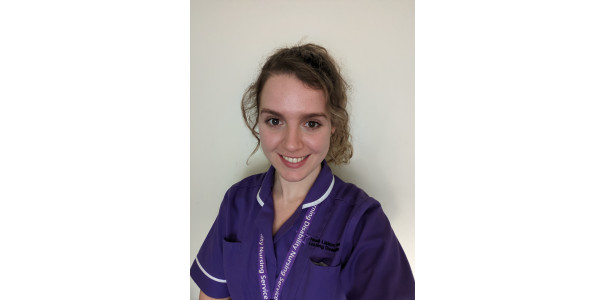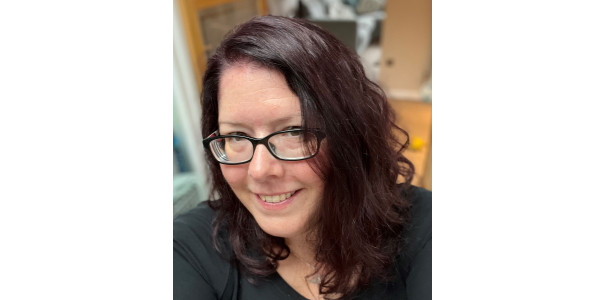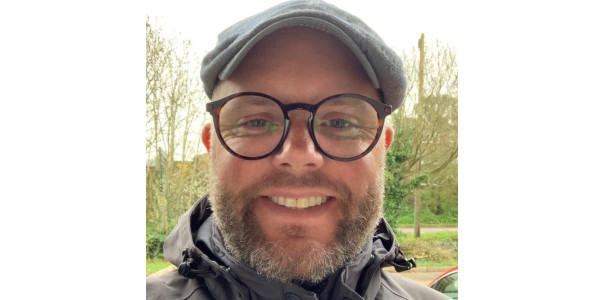A learning disability is different for everyone. No two people are the same.
A person with a learning disability might have some difficulty:
understanding complicated information
learning some skills
looking after themselves or living alone
A learning disability is different for everyone. Lots of people who have a learning disability can work, have relationships, live alone and get qualifications.
Other people might need more support throughout their life.
Many people find the term 'learning disability' confusing. Many different terms are also used, including developmental disability or learning difficulty as well as out of date terms which are no longer seen as acceptable such as mental handicap.
Many people with a diagnosis of having an autistic spectrum disorder or cerebral palsy may also have a learning disability although this is not necessarily the case.
This information video will give you a insight into just some of the roles available in a Learning disability career.
Learning disability nurses provide specialist care, support and treatment to people with a learning disability and to their families and carers, to help them lead fulfilling lives.
Learning disability nurses:
support people with a learning disability, taking a lifelong approach to maintaining physical and psychological health and social wellbeing, so that people can live their lives as fully and independently as possible.
provide health education adapted to each individual’s cognitive ability along with support to manage their health, especially for those with long-term conditions.
work closely and collaborate with the person, their family, carers, other health, social work, and educational professionals, and all members of the learning disability care team.
Learning disability nurses are often staunch advocates for the people and families that they support and ensure that people’s human rights are protected by facilitating reasonable adjustments and enhancing communication.
There are many reasons why you should consider a career as a learning disability nurse. It offers you the chance to make a difference, a high degree of flexibility and a career with excellent employment prospects
A career in learning disability nursing means that every day is different. It is a unique and diverse branch of nursing, working across physical and mental health, and psychosocial care. Learning disability nurses build relationships, based on understanding a person’s wishes and goals, which support not only people with learning disabilities but their families too. They make a difference!
'I became a learning disability nurse because I have a passion for reducing health inequalities for this very vulnerable population. I worked as a support worker in a care home and could see the gap in support and provision for people with learning disabilities - I wanted to enact positive change. For anyone thinking about a career in learning disability nursing, I'd advise them to do their research and push the boundaries of what they think they can do - the sky is the limit!'
Emily Jones, Health Liaisons nurse at the East and North Hertfordshire NHS Trust.

Learning disability nurses support people of all ages. They work alongside people, and support them to reach their full potential and live a full and meaningful life. They work holistically and in a person-centered way, to provide bespoke care to suit a person’s individual needs. Working to fight stigma and health inequalities, learning disability nurses advocate for people’s rights, promote equality, and mentor and teach others outside of their profession.
Children identified as having a learning disability are living longer, more fulfilled lives into adolescence, adulthood and older age. Learning disability nurses play a vital role working across the whole life span in both health and care settings.
The main areas of your role as a learning disability nurse involve:
improving or maintaining a person’s physical and mental health
reducing barriers to them living an independent life
supporting the person in living a fulfilling life
Learning disability nurses may also help people to learn the skills needed to find work. This can be significant in helping them to lead a more independent and healthy life where they can relate to others on equal terms.
You'll work in a range of settings, including people's homes, education, residential and community centers and hospitals and also specialist services such as with people who have neurodevelopmental needs, people with a forensic history or risk, or in prisons. You may work shifts to provide 24-hour care. You’ll work as part of a team including GPs, psychologists, social workers, teachers, general practitioners, occupational therapists, speech and language therapists and healthcare assistants.
There are also liaison roles both in hospitals and primary care settings, supporting access to mainstream health services and roles in commissioning, public health, and research.
Naomi (Named Nurse Safeguarding Adults, MCA and Prevent Lead, Deputy Clinical Lead for Learning Disability and Autism Strategy)
Everyday I advocate for people who don’t have a voice, people who are being harmed or neglected in some way or people who need help to make their own decisions. I use my background as a learning disability nurse to support the NHS Trust I work for consider how to best support people with learning disabilities in accessing services and reduce health inequalities.
To continue reading Naomi career journey click here

Mark, Learning Disability Nurse
I became an LD Nurse due to experiences I had with people with intellectual disabilities which showed me that they are not only societies most vulnerable & misunderstood members but also the funniest, caring and best members of our community.
To continue reading Mark career journey click here

To become a learning disability nurse the main route is through a degree course at university. Entry requirements for these courses can vary depending on where and how you’d like to study so it's important to check with universities. You can find a learning disability nursing courses at the bottom of this page.
Typically, you'll need a minimum of five GCSEs at grade 4/C or above, possibly in English language or literature and a science subject, plus two A levels or equivalent level 3 qualifications for an undergraduate degree. Some universities may ask for three A levels or equivalent. If you already have a degree, you might be able to study for a postgraduate qualification through a postgraduate programme.
There are other routes into learning disability nursing such as nurse degree apprenticeships and nursing associate apprenticeships.
Don’t forget - academic qualifications aren’t everything. Communication and interpersonal skills are crucial, as well as strong judgement, be able to teach advise and manage people.
If you're applying for a role either directly in the NHS or a university course, you'll be asked to show how you think the values of the NHS Constitution apply in your everyday work.
Your standard working week will be around 37.5 hours on shift pattern which can include nights, early starts, evenings, weekends and bank holidays. As a learning disability nurse, you’ll be paid on the Agenda for Change (AFC) pay system, typically starting at band 5.
You’ll also have access to our generous pension scheme and health service discounts, as well as 27 days of annual leave plus bank holidays.
Find out about different learning disability nursing roles – what the job entails, pay and benefits, training, entry requirements, financial support, and career progression
Role | Qualifications |
Healthcare Support Worker They work with registered nurses and other health and care professionals as part of a multidisciplinary team | No |
Assistant practitioner Assistant practitioner is a clinical role, delivering person-centered care with other members of the nursing team. Assistant practitioners provide direct care to people, and may contribute to service improvement projects, support the collection of data relating to safety and quality, and supervise those in healthcare support worker roles. They work under the direction of a registered health professional, as part of a team with other healthcare staff, and have a lot of contact with patients. | Foundation degree Which may be available as an apprenticeship programme |
Registered Nursing Associates Registered Nursing Associates work with people of all ages in a variety of settings in health and social care. A Registered Nursing Associate working within a learning disability setting will contribute to planning, implementing and evaluating care to support people to live independently. They work with registered nurses and other health and care professionals as part of a multidisciplinary team | Foundation-degree Delivered by a two-year apprenticeship programme. |
Registered Learning Disability Nurse The registered learning disability nurse plays a vital role, working with people with learning disabilities across the whole lifespan in both health and social care settings. By working with people and their families and putting the person at the center of everything they do, these nurses lead the way in achieving positive health and social outcomes for people with learning disabilities. | Undergraduate Degree Can be delivered as an apprenticeship programme. |
Assistant Practitioner | Master’s degree |
Nurse consultants Nurse consultants, also called consultant nurses, are highly experienced nurses who have specialised in a chosen area of practice. All consultant nurse posts are firmly based in clinical and nursing practice and involve nurses working directly with patients, clients, or communities for much of their time. | Master’s degree |
There are a wide range of apprenticeships available in health and care. Find out more about these exciting opportunities here.
Interested in working for the NHS or social care? Find out about current vacancies and how to apply.
There are a wide range of apprenticeships available in health and care. Find out more about these exciting opportunities here.
Interested in working for the NHS or social care? Find out about current vacancies and how to apply.